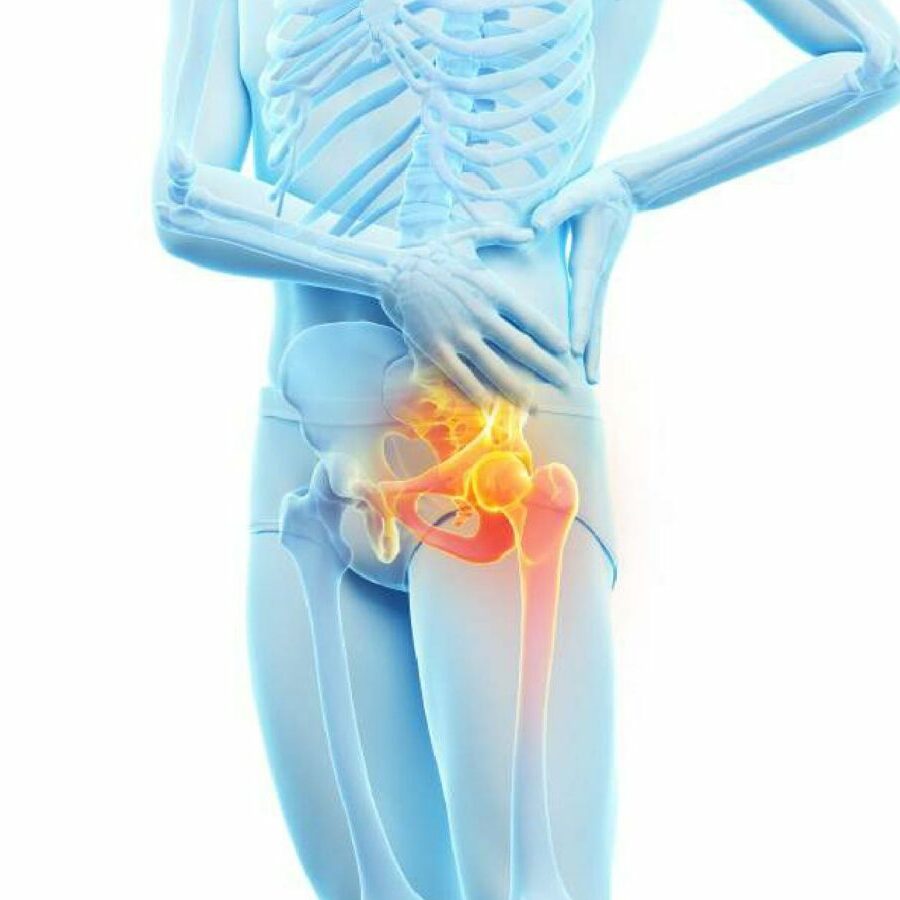Hassle-free Insurance Verification
Hip Pain Causes
There are several causes of hip pain, and its severity can vary depending on the underlying reason. It’s important to note that systemic inflammation within the body can also be a contributing factor to hip pain.

These are some of the causes for hip pain:
- Hip Arthritis (Osteoarthritis): This form of arthritis is highly prevalent and involves the breakdown of cartilage in the hip joint.
- Hip Tendonitis & Bursitis: This condition occurs when the bands of tissue that connect muscles to bones become inflamed due to overuse.
- Hip Injuries: The hip region is susceptible to various types of injuries, some of which can result from auto accidents, work-related injuries or hazardous falls.
The underlying injuries or diseases can be treated with non-surgical or surgical procedures. In all instances, doctors prioritize non-surgical treatment options before considering surgery.
Who Does it Affect?
Hip pain is relatively common among kids and adults. Approximately 7.1% of those with chronic pain claim to feel it in their hip, according to the Centers for Disease Control and Prevention.
What are the Primary Causes & Symptoms of Hip Pain?
Hip Arthritis (Osteoarthritis)
Osteoarthritis, a highly prevalent form of arthritis, involves the deterioration of cartilage. This cartilage covers both the acetabulum and the surface of the femoral head. As it breaks down, it leads to the bones rubbing against each other, resulting in significant hip pain, oftentimes in the groin area.
Hip Tendinitis & Bursitis
Tendonitis occurs when the bands of tissues that attach muscles to bones become inflamed due to overuse. Bursitis, on the other hand, happens when the bursae become irritated. In the presence of inflammation, the cushioning for your tendons is compromised.
Hip Injuries
- Dislocation: This occurs when the ball at the top of the femur slides out of the socket, resulting in severe pain and an inability to move the leg.
- Snapping Hip Syndrome: Your hip is extended and snaps, producing a snapping noise that may or may not be audible. It can be painful or painless. This is characterized by thickened bands of connective tissue supporting the hip that catch when sliding back and forth on the top end of the thigh bone.
- Fractured Hip: A broken hip can happen to individuals of any age, but it is more common among seniors aged sixty-five and older.
- Labral Tear: This term refers to damage affecting the cartilage surrounding the bony edge of the pelvic socket. It can occur due to persistent hip use and is often associated with the early stages of osteoarthritis. A labral tear can also result from a twisted hip joint, which can be triggered by an injury.
Symptoms of Hip Pain
- Hip stiffness and the loss of flexibility
- Deep ache in the groin area
- Inflammation and a burning sensation
- Difficulty climbing stairs
- Pain in the hip joints or on the outside of the hip
How can a doctor diagnose Hip Pain?
The process of diagnosing hip pain typically begins with a thorough physical examination and a detailed discussion of your medical history. Your hip pain doctor will inquire about your symptoms and how they vary with rest and activity levels. It’s important to talk about the duration of your hip symptoms and whether you have a history of hip-related illnesses or injuries.
During the physical examination, the physician will assess your painful hip and the surrounding joints, looking for signs of swelling, pain, or tenderness. In addition to this, the doctor may order imaging tests and laboratory tests to ensure an accurate diagnosis.
Non-surgical
Non-invasive
Popular Treatments for Hip Pain
Hip Treatment Medicines
These medications are designed to alleviate pain and reduce inflammation. They can also help slow down bone loss and prevent further damage to the hip.
Steroid Injection/ Cоrtісоѕtеrоіdѕ
Steroid Injections, or corticosteroids, are often the initial choice for minimally invasive treatments. This medication can reduce inflammation associated with your hip pain. Injections are widely regarded as one of the most effective minimally invasive treatments for alleviating hip pain using X-ray or ultrasound guidance for precision.
Platelet Rich Plasma (PRP) Therapy
Known simply as PRP therapy, this method involves a treatment in which a patient receives injections of their own blood’s platelets and growth factors. These platelets and growth factors initiate a repair process that stimulates the body’s cells to engage in natural healing.
Surgical Treatments
If non-surgical treatments for hip pain prove ineffective, the next step is often hip surgery. There are various types of hip surgeries available, including total joint replacement surgery, arthroscopy, hip resurfacing surgery, and osteotomy. To learn more about these procedures, please visit our Hip Surgery section.
Experience pain relief asap
book now
Meet our team
In pain and need to make an appointment as soon as possible?
Expect a call from our Pain Treatment Center scheduling team. We will collect your insurance information to ensure you’re covered and book you an appointment as soon as possible.
Give us a call at (212) 470-0435
Experience pain relief asap
Dr. Laura Lombardi
Pain Doctor New Jersey
Harvard Medical School
Dr. George Hanna
Pain Doctor New York
Harvard Medical School
Dr. Michael Nguyen
Pain Doctor
Harvard Medical School
Dr. Shane Volney
Pain Doctor New York
Harvard Medical School
Dr. Jeffrey Deygoo
Pain Doctor New York & New Jersey
Hofstra-Northwell School of Medicine
Dr. Jack Bulat
Harvard Medical School






